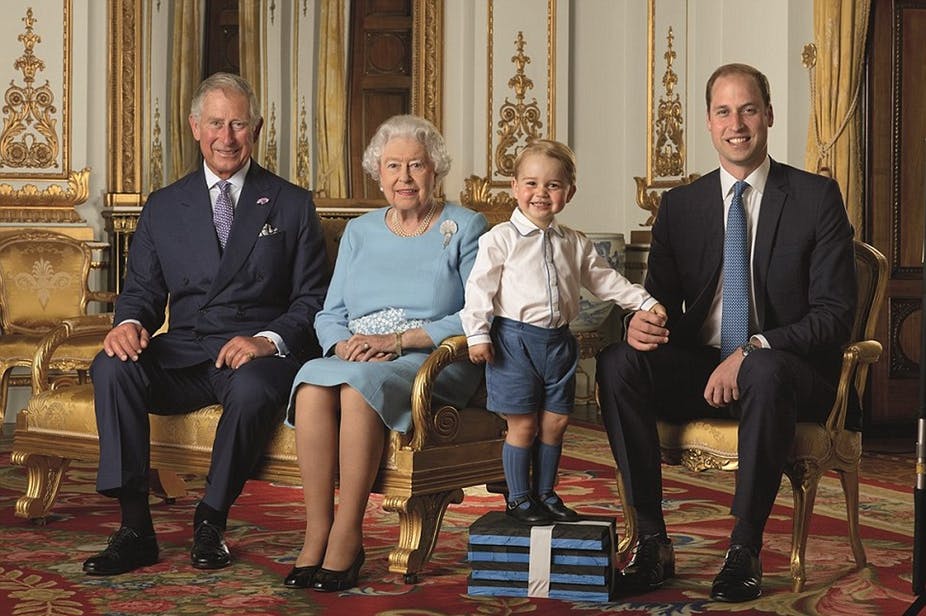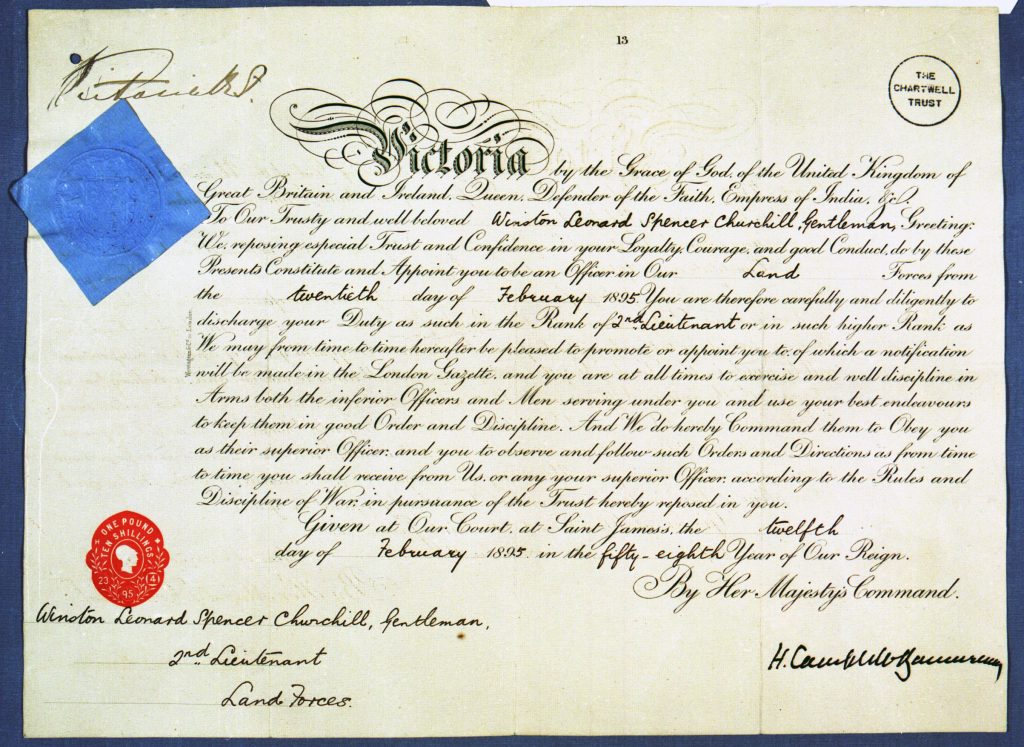
Finest Hour 184
Queen Victoria

Queen Elizabeth II with her expected line of succession
June 19, 2019
Finest Hour 184, Second Quarter 2019
Page 50
Of the monarchs under whom Winston Churchill lived and served, the only one he never met personally was Queen Victoria (1819–1901). His father Lord Randolph had served the Queen as a cabinet minister, and his grandfather the seventh Duke of Marlborough represented the Queen as her Lord Lieutenant of Ireland. Despite these family connections, it appears that Churchill himself saw the Queen only as part of a crowd including the celebrations during her Golden (1887) and Diamond (1897) Jubilees.
It was as a soldier of the Queen that Churchill served Victoria himself. While attending the Royal Military College, Sandhurst, Gentleman Cadet Churchill formed part of a guard of honour when the Queen visited Aldershot in May 1894. The following year, upon completing his course of training, Churchill was commissioned a second lieutenant in Her Majesty’s “Land Forces” (see below).
Churchill’s subsequent promotions in the army were also given “By Her Majesty’s Command” as he served the Queen in India, where he first engaged in combat; in Sudan, where he participated in the cavalry charge at Omdurman; and in South Africa, where his escape from a prison camp helped to propel him into Parliament during the last general election of Victoria’s lengthy reign.

Before taking his seat in the House of Commons, Churchill travelled to North America on a speaking tour. Thus he found himself in Canada when the Queen finally died on 22 January 1901. “So the Queen is dead,” Churchill wrote his mother that day. “The news reached us at Winnipeg, and this city far away among the snows— fourteen hundred miles away from any British town of importance began to hang its head and hoist half-masted flags.”

2024 International Churchill Conference
“All reflecting men and women,” Churchill wrote in A History of the English-Speaking Peoples, “could appreciate the advance of British power and the progress of the British peoples that had taken place during the age to which she gave her name. The Victorian Age closed in 1901, but the sense of purpose and confidence which had inspired it lived on through the ordeals to come.”
Subscribe
WANT MORE?
Get the Churchill Bulletin delivered to your inbox once a month.




